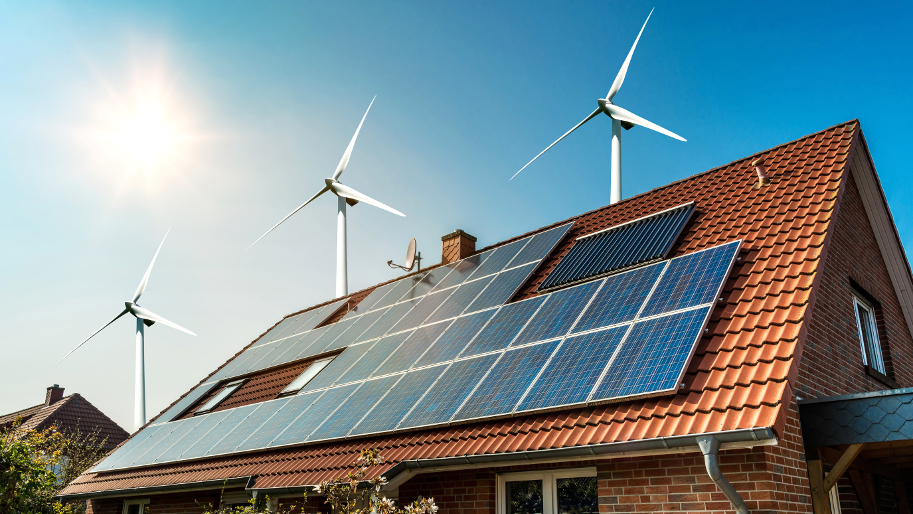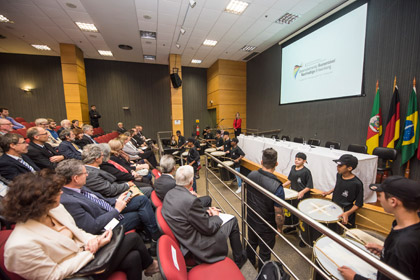Sustainable urban development: Brazil-Germany success stories
 © iStockphoto
© iStockphoto
Researchers from Germany and Brazil lead an ambitious and pioneering project that, in the future, will likely help ensure food safety for people, in the face of climate change. The objective of the Brazil-Germany Symposium on Sustainable Development is to present and discuss the differences between Brazil and Germany.
Brazil-Germany project focuses on food safety in light of climate change
Researchers from Germany and Brazil lead an ambitious and pioneering project that, in the future, will likely help ensure food safety for people, in the face of climate change. The objective of the project, carried out by the University of São Paulo’s Luiz de Queiroz School of Agriculture (Esalq), in partnership with the Westfälische Wilhelms-Universität Münster (WWU Münster), is to study the characteristics of the adaptation of some wild species to adverse conditions.
“The objective is to directly manipulate the wild species at the gene level, in order to domesticate them from square one and, thus, take advantage of their adaptation to adverse environments – like dryness, salinity, and predators,” explains Lázaro Eustáquio Pereira Peres, who heads up the ESALQ project, along with Jörg Kudla, from WWU. “Basically, this means doing quickly what our ancestors took the last several thousand years to do,” Peres pointed out, regarding the selection performed down through the history of humanity of the types that best serve for large-scale cultivation.
In the joint project, Peres and Kudla use the knowledge already gained by science regarding the genetic modifications of a parent of the tomato species. The species studied, called Solanum galapagense, is naturally resistant to salinity. It evolved along the coastal regions of the Galapagos Islands and was collected for the first time by Charles Darwin, in 1835, Peres says. The research could help unveil different mechanisms and make broader manipulations possible in the future, thus extending the knowledge to other species.
The study was presented during the 6th Brazil-Germany Dialogue on Science, Research, and Innovation, in November 2017, which was organized by the German Center for Research and Innovation – São Paulo (DWIH São Paulo), by the Research Foundation of the State of São Paulo (Fapesp), and by the Brazilian Ministry of Science, Technology, Innovation, and Communication (MCTIC).
Brazil-Germany Symposium on Sustainable Development

The Brazil-Germany Symposium on Sustainable Development was held for the first time in 2003, in Tübingen, Germany. The objective of the event, which is held every two years, alternating among the two countries, is to present and discuss the differences between Brazil and Germany, in terms of sustainable development, relating cultural identity with the earth’s resources and their processes. Energy, water, soil, climate, biodiversity, agriculture and forestation, policies, economy, and health are analyzed and discussed in their distinctive particularities for the purpose of seeking solutions and new opportunities for the progress of sustainable development.
With its cross-disciplinary approach, the symposium is structured with four days of presentations, roundtable discussions, debates, and a panel discussion time with Professors from Germany and Brazil, as well as a one-day excursion. In 2019, the ninth edition of the symposium will be held, and the venue is in Germany, under the topic “Integrating Systems for Sustainable Development – A Cross-Continental Partnership”.
In 2017, the 8th Brazil Germany Symposium on Sustainable Development, held in October at the Catholic University of Rio Grande do Sul (PUCRS), in the city of Porto Alegre, brought together some 250 participants. The event was organized by the PUCRS Environmental Institute (IMA), the Baden Württemberg Brazilian Center of the University of Tübingen, and by the Institute of Earth Sciences of the University of Heidelberg. It was supported by Capes (Coordination for the Improvement of University Personnel (Capes), the German Centre for Research and Innovation São Paulo (DWIH São Paulo), the Baden Württemberg Brazilian Center of the University of Tübingen (Bw-i), Johannes Kärcher, the Stihl company, and others.
The discussions were divided among 14 sessions on topics related to sustainable development. The main points were water and oceans, public health, food safety and agriculture, bioeconomy, biodiversity, sustainable mining, renewable energy sources, development of a green infrastructure in urban areas, climate change, social and environmental responsibility, ethics, and environmental law. In the closing session, binational and cooperative programs were presented by the German Academic Exchange Service (DAAD), the German Society for Research Funding (DFG), the DWIH São Paulo, and other organizations.
After the presentations, a delegation of over 20 people, formed by representatives of the University of Tübingen and PUCRS, visited the Pró-Mata research station, in the protection area of the endangered araucária trees in the vicinity of the city of Porto Alegre.
